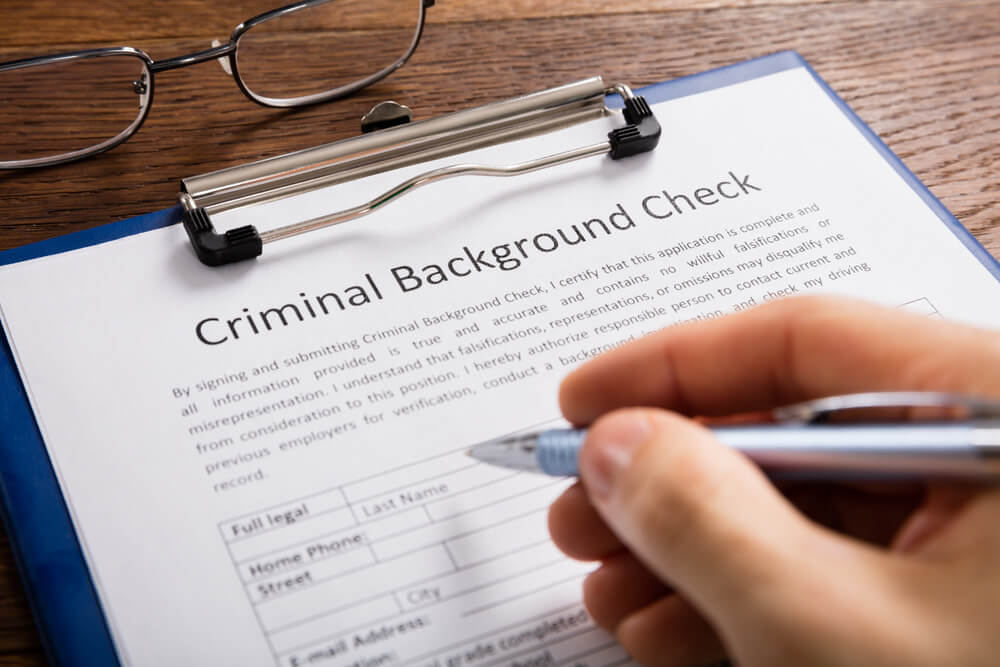
Criminal Record
Criminal record checks have become a cornerstone of modern hiring practices. These checks involve an in-depth examination of an individual’s criminal history to ensure they are fit for the role and pose no risk to the organization or its clients. With increasing concerns about workplace safety and data security, employers are more diligent than ever when it comes to vetting potential employees. Such scrutiny is particularly critical in sensitive industries like healthcare, education, and finance, where any oversight can have severe consequences. Employers need to conduct a criminal record check to build a trustworthy and safe working environment. This careful examination not only enhances the quality of hires but also helps mitigate potential legal and reputational risks that can arise from employing someone with a questionable past. It’s a crucial step in ensuring organizational integrity and public trust.
Why Employers Conduct Criminal Record Checks
One of the primary reasons employers conduct criminal record checks is to ensure the safety and integrity of the workplace. This process helps identify any past criminal behavior that could pose a threat to the workforce or the company’s reputation. In today’s highly litigious society, even a single bad hire can lead to devastating consequences, including lawsuits and severe financial penalties. Depending on the industry and the region, there are often legal requirements for conducting criminal record checks. These laws are put in place to ensure that individuals in sensitive positions are thoroughly vetted, contributing to overall workplace safety. For instance, sectors involving children, vulnerable adults, or finance commonly have stringent background check requirements to prevent potential abuse or fraud.
Additionally, knowing that their colleagues have been thoroughly vetted builds trust among current employees, creating a more harmonious and productive work environment. Employees are more likely to feel secure and dedicated to their jobs if they know that everyone around them has been subjected to the same rigorous screening process.
Types of Information Revealed
Criminal record checks can reveal a range of information, from minor misdemeanors to serious felonies. These checks typically include details about convictions, arrests, and any pending charges. Each piece of information provides critical insights that can influence hiring decisions. For instance, knowing whether a potential hire has a history of violent behavior or theft can be crucial for positions that require high levels of trust and responsibility.
For example, in sectors such as childcare or eldercare, any history of violent crime or abuse can be a serious red flag. Employers in these fields must be absolutely confident that their staff can be trusted with the vulnerable populations they serve. Similarly, financial institutions need to screen for fraudulent activities to protect their business integrity and the financial security of their clients.
The Process of Conducting a Criminal Record Check
Conducting a criminal record check involves several steps, including obtaining consent from the potential employee, using authorized agencies, and understanding the results. This step ensures transparency and fairness and is often a legal requirement. Employers often rely on accredited agencies for comprehensive and accurate screenings, providing peace of mind. After the check is complete, employers must carefully weigh the severity and relevance of any discovered offenses against the responsibilities of the role, making informed decisions about hiring. After receiving the results, it’s essential to follow best practices in handling any discovered records. This includes balancing the severity of the offense with the time elapsed since the incident and considering the relevance to the job role. For example, a minor offense committed several years ago may be less relevant than a more recent and severe transgression.
The Benefits of Criminal Record Checks
Criminal record checks provide numerous benefits for employers, including enhanced safety and security, improved hiring quality, and reduced potential liability and risk. Employers can gain peace of mind knowing all employees have passed background checks, which is crucial in sectors where trust and integrity are essential. Screening for past criminal behavior allows employers to make informed decisions, leading to a higher-caliber workforce and a positive company culture. Regular checks also help minimize workplace incidents and legal ramifications, saving companies from costly lawsuits and damaged reputations.
Future Trends in Criminal Record Checking
The landscape of criminal record checking is continuously evolving, with technology playing a significant role. Modern advancements allow for quicker and more accurate checks, streamlining the hiring process. Innovations in data integration and machine learning are making it easier for employers to conduct thorough screenings efficiently.
Additionally, as global workforces become more common, the need for international background checks is increasing. Employers must be prepared to navigate the complexities of conducting checks across different legal systems and cultural contexts, ensuring that their vetting processes are both comprehensive and legally compliant. Emerging laws and regulations continue to shape the process, making it essential for employers to stay up-to-date with the latest requirements and best practices. Staying informed about these changes helps companies adapt their policies to remain compliant and fair.
Conclusion
In conclusion, criminal record checks are indispensable for modern hiring practices. They not only protect the workplace but also help employers make well-informed hiring decisions. By adopting comprehensive and ethical background check policies, businesses can foster a safe, trustworthy, and efficient working environment.
Ultimately, balancing the need for safety with the principles of fairness and second chances will be crucial to the future of criminal record checking. Employers striving for excellence in their hiring practices must consider both the practical and ethical implications of criminal background screenings.






